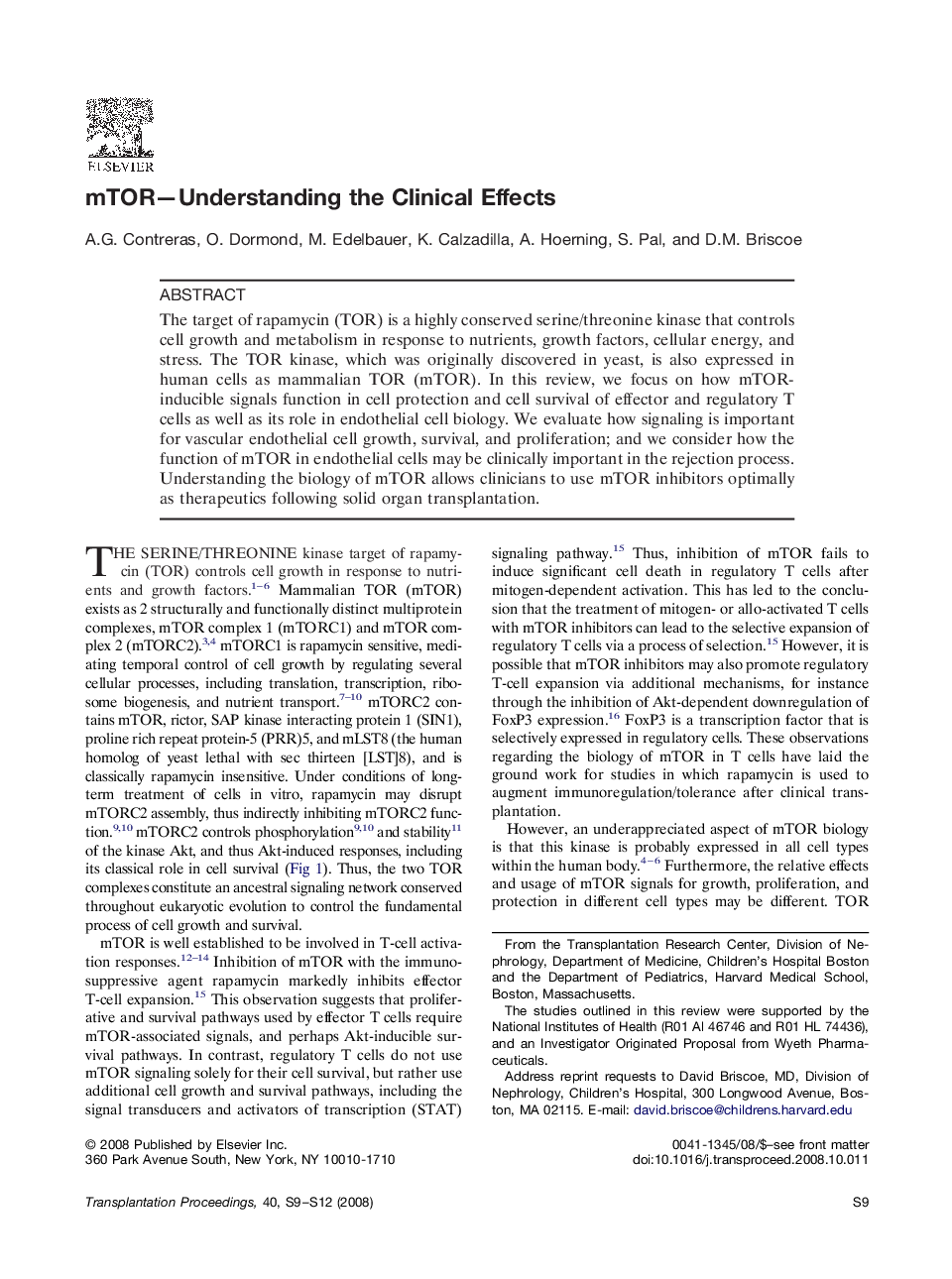| Article ID | Journal | Published Year | Pages | File Type |
|---|---|---|---|---|
| 4260975 | Transplantation Proceedings | 2008 | 4 Pages |
The target of rapamycin (TOR) is a highly conserved serine/threonine kinase that controls cell growth and metabolism in response to nutrients, growth factors, cellular energy, and stress. The TOR kinase, which was originally discovered in yeast, is also expressed in human cells as mammalian TOR (mTOR). In this review, we focus on how mTOR-inducible signals function in cell protection and cell survival of effector and regulatory T cells as well as its role in endothelial cell biology. We evaluate how signaling is important for vascular endothelial cell growth, survival, and proliferation; and we consider how the function of mTOR in endothelial cells may be clinically important in the rejection process. Understanding the biology of mTOR allows clinicians to use mTOR inhibitors optimally as therapeutics following solid organ transplantation.
